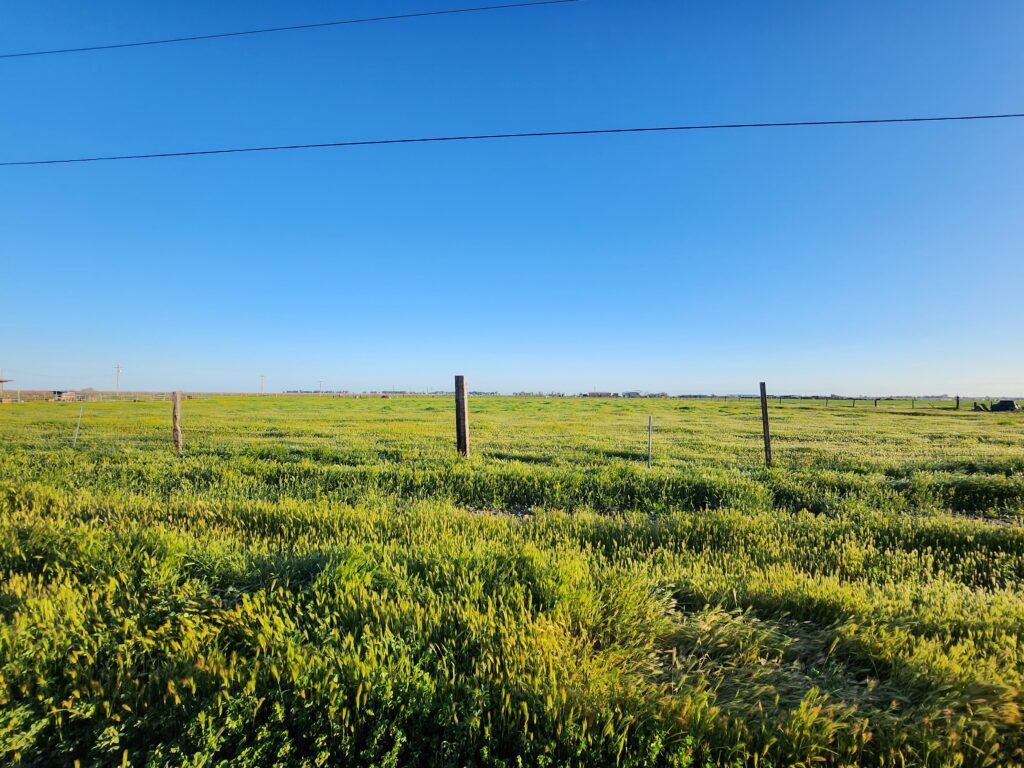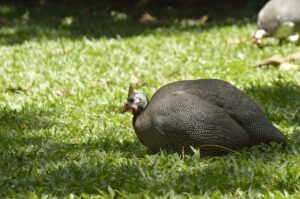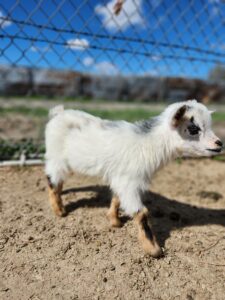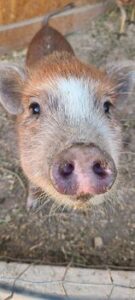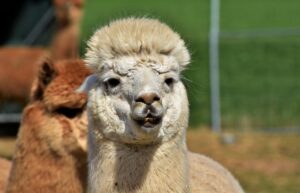As an experienced homesteader or hobby farm owner will tell you, raising animals is a crucial component of a self-sufficient lifestyle. When we started our small farm, like many, we wanted every farm animal despite the value it can bring us. We quickly learned what worked for us and what didn’t, here is our take on what worked.
Chickens and Roosters
You probably already guessed! Many hobby farms and even backyard farms have a flock of chickens running around. They are number one for obvious reasons, they are easy to raise and care for. Whether you are looking to start off as a small to a full self-sustaining lifestyle, chickens have a multi-purpose use, they can be used for meat, eggs, manure, and breeding. Here are the top reasons to add chickens to your hobby farm:
-
Fresh Eggs: Chickens are egg layers, and you can have a steady supply of farm fresh eggs for your family or to sell at your local farmer’s market. This alone is a bonus for bringing revenue into your hobby farm. Plus, you know exactly what your chickens eat, so you can ensure that your eggs are of the highest quality.
-
Pest Control: Chickens love to forage and will eat a variety of insects, including pesky ticks and grasshoppers. Having chickens on your property can help keep these pests under control.
-
Fertilizer: If you plan on growing your food, chicken manure is an excellent fertilizer for your garden. It’s high in nitrogen, phosphorus, and potassium, which are essential for plant growth.
-
Low Maintenance: Chickens are relatively low-maintenance animals. Like many animals on the farm, they require a clean and dry coop, fresh water, and food, but beyond that, they do not need much attention. Chickens can live for several years and continue to provide eggs and fertilizer for your farm.
-
Breeding: The bonus of raising chickens is the joy of hatching eggs. Whether you let your chickens naturally hatch their own eggs or through incubation, you can control the breeding of your flock. Without a rooster, your hen’s eggs are infertile and will not develop into chicks. Although roosters are known for the early morning wake-ups, they help keep the peace among hens and protect the flock.
Guinea hens
Guinea hens are not popular in our area and for some, they may not be the best fit. They can be known to be noisy and flighty but here is why they have worked for us.
-
Watchdogs: Guinea hens are known for their loud and distinctive calls, which can alert you to any potential danger on your property. They are very territorial and will sound the alarm if they sense a threat.
-
Self-Sufficient: Guinea hens are very self-sufficient animals and require very little maintenance. They are good at finding their own food and water, and they will often roost up high.
-
Pest Control: Like Chickens and many fowls, Guinea hens are excellent at controlling pests such as ticks, grasshoppers, and other insects. They are natural foragers and will eat a variety of insects that can be harmful to your garden and even livestock.
Goats
When we started our hobby farm journey, we started with Goats as they are normally a popular choice for small hobby farms, but they are also not for everyone. We started off with Nigerian Dwarf Goats for these top reasons:
-
Milk Production: Nigerian Dwarf Goats like Nubians are excellent milk producers, despite their small size. They can produce up to two quarts of milk per day, which is high in butterfat and protein. Their milk is also easier to digest than cow’s milk, making it a great option for those who are lactose intolerant.
-
Small Size: We chose Nigerian goats for this very reason, they are the smallest of the dairy goat breeds, making them a great option for us at the start. We lived on a ¼ of an acre prior to our moving and not much space was required.
-
Fertilizer: Goat Manure is an excellent fertilizer for your garden. Nigerian Dwarf goats produce a lot of manure for their size, and like chicken manure, it is high in nitrogen and other nutrients that plants need to grow.
-
Companionship: Goats are social animals and make cute companions. They have friendly personalities and can be easy to train. I say this lightly as mine can act on their own personalities.
-
Breeding: Goats have been our primary source of revenue on our hobby farm. Breeding and Raising Dwarf kids are not an easy task. But have the added benefits of our goats paying for themselves through the sales of goat kids or like other homesteaders the sales of milk, cheeses, and soap.
Pigs
I’ll be honest, pigs were one of the animals we considered as one of those must need to have on a farm only because our 5-year-old at the time said so. The only things I really cared to know about pigs were they were “dirty” animals and were popular meat choices for many. So we opted for the smaller of the breeds which most like to call “Mini Pigs”. We quickly learned there was no such thing as mini pigs but smaller breeds. Here are some reasons pigs might work for you:
-
Waste Management: Pigs are great at turning waste into useful resources. This is where I loved having pigs, leftovers did not go to waste. They can eat a variety of food scraps, which reduces the amount of waste that needs to be disposed of. In addition, Pig manure is also an excellent fertilizer for crops and can help improve soil quality.
-
Meat Production: Although my family does not eat pork, many pigs are an excellent source of meat. Pigs can provide a large amount of meat for a homesteading family.
-
Intelligent and Entertaining: Pigs are highly intelligent and curious animals and can provide hours of entertainment for yourself or your little ones. They have unique personalities and behaviors.
-
Breeding: Pigs usually breed twice a year, and produce up to 12 piglets in a litter. Piglets can be weaned earlier than many of the animals on the farm from some ranging two to four weeks of age. Plus, they are cute!
For those interested in larger farm animals, here are some insights on these furry friends.
Horses
Horses and riding have since been a hobby for most people but as you know former generations have relied on horses for their power and much more. There are countless benefits to having them on your farm, but it does take a lot of dedication and commitment to have these larger animals on your farm.
-
-
They can teach children responsibility and dedication to raising and caring for horses through maintenance, feeding, and riding.
-
They are wonderful companions to people and extremely intelligent.
-
Their manure can be composted for added benefits for your garden.
-
Horses can be used to herd cattle and sheep.
Alpacas
Alpacas are one of the most unique animals to have on a farm. They are not quite popular in our area as they require extra care in hotter conditions. We only raised a couple of Alpacas on our farm for some time so we had the pleasure of learning about these creatures. It is important to know that like goats, Alpacas are herd animals, and it is best to start off with a few. They aren’t known to be guardian animals for livestock so it may be best to consider adding a Llama. Here are some reasons to consider having them.
-
-
Alpacas make wonderful companions as they are friendly and easy to train.
-
They don’t need extensive shelter from colder weather.
-
They deposit their manure in one to two places in your pasture, making it easier for manure collection.
-
They are easy on land; they do not have hooves and nibble the grass rather than pulling it up by their roots.
While numerous options of farm animals on your hobby farm sound like a great idea, space, and feed is a huge factors in your homestead. So, if you want to start raising animals, I recommend starting off small with chickens or goats. It has been a rewarding experience in raising these animals. We are still learning and hope you find what works for you!
Copyright
You are welcome to link to farmandbarbell.com or use a single image with a brief description back associated to any post. Republising posts in the entirety is prohibited.
Upcoming Events
- There are no upcoming events.

